- News
- Reviews
- Bikes
- Accessories
- Accessories - misc
- Computer mounts
- Bags
- Bar ends
- Bike bags & cases
- Bottle cages
- Bottles
- Cameras
- Car racks
- Child seats
- Computers
- Glasses
- GPS units
- Helmets
- Lights - front
- Lights - rear
- Lights - sets
- Locks
- Mirrors
- Mudguards
- Racks
- Pumps & CO2 inflators
- Puncture kits
- Reflectives
- Smart watches
- Stands and racks
- Trailers
- Clothing
- Components
- Bar tape & grips
- Bottom brackets
- Brake & gear cables
- Brake & STI levers
- Brake pads & spares
- Brakes
- Cassettes & freewheels
- Chains
- Chainsets & chainrings
- Derailleurs - front
- Derailleurs - rear
- Forks
- Gear levers & shifters
- Groupsets
- Handlebars & extensions
- Headsets
- Hubs
- Inner tubes
- Pedals
- Quick releases & skewers
- Saddles
- Seatposts
- Stems
- Wheels
- Tyres
- Health, fitness and nutrition
- Tools and workshop
- Miscellaneous
- Tubeless valves
- Buyers Guides
- Features
- Forum
- Recommends
- Podcast
review
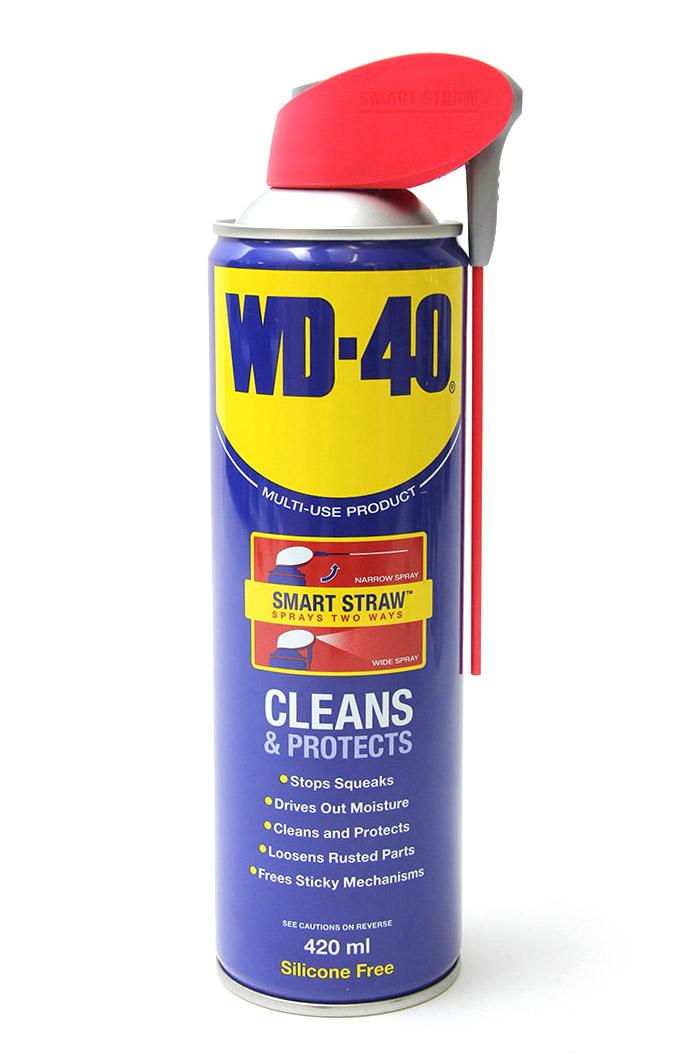 WD40 Multi Use
WD40 Multi Use£5.99
VERDICT:
Iconic and extremely versatile corrosion-inhibiting spray. Every toolbox should have some
Weight:
420g
Contact:
www.wd40.co.uk
At road.cc every product is thoroughly tested for as long as it takes to get a proper insight into how well it works. Our reviewers are experienced cyclists that we trust to be objective. While we strive to ensure that opinions expressed are backed up by facts, reviews are by their nature an informed opinion, not a definitive verdict. We don't intentionally try to break anything (except locks) but we do try to look for weak points in any design. The overall score is not just an average of the other scores: it reflects both a product's function and value – with value determined by how a product compares with items of similar spec, quality, and price.
What the road.cc scores meanGood scores are more common than bad, because fortunately good products are more common than bad.
- Exceptional
- Excellent
- Very Good
- Good
- Quite good
- Average
- Not so good
- Poor
- Bad
- Appalling
WD40 Multi Use 420ml is the ubiquitous and iconic maintenance spray that takes its name from the 40 attempts its inventor made to perfect the formula.
Old as the hills, it remains a godsend for everyday jobs such as freeing sticky control cables, driving moisture from electrical contacts or just keeping pesky squirrels off garden hardware (no joke - here's a video).
Just like Coca Cola, WD40 was never fully patented, which allows them to keep the exact formula under wraps. What I can tell you is that it's derived from petroleum distillates that disperse water, gobble gunge n' grime, while leaving behind a thin, protective lubricant film.
This explains how it cures squeaks and keeps chrome looking spotless, but shouldn't be used as an everyday chain lube. But harness its charms to good effect on stubborn fasteners and seatposts and stems on the cusp. But properly seized compenents need the brands' new fast release penetrative spray, which I will review separately.
One of my most surprising WD40 triumphs was a cheap but cheerful rear blinky light with a faulty seal. This had allowed water inside, partially corroding the switch. Removing the back and directing two-second blasts at close range to the affected area while simultaneously toggling its rubberised switch fixed this - good as new in ninety seconds.
Handle with some care though; WD40 will soften car polishes and similar products on contact (placing strips of cardboard beneath bare cable runs before giving them a quick hit solves this) and its highly invasive nature means you'll need to take extra care around rubberised synthetics and even unsealed bearings.
Verdict
Iconic and extremely versatile corrosion-inhibiting spray. Every toolbox should have some.
road.cc test report
Make and model: WD40 Multi Use
Size tested: n/a
Tell us what the product is for, and who it's aimed at. What do the manufacturers say about it? How does that compare to your own feelings about it?
"WD-40 lubricates moving parts such as hinges, wheels, rollers, chains, and gears. It protects against rust and corrosion on items like tools, and sporting equipment. It penetrates to free stuck corroded parts like nuts, bolts, valves and locks. It quickly removes adhesives, corrosion and paint. It displaces moisture to restore water flooded equipment such as engines, spark plugs and power tools."
Does exactly what it says on the tin.
Tell us some more about the technical aspects of the product?
Operating Temperature: -10˚ F to 200˚ F
Dielectric Strength: 44,400 - 47,800 Volts
Solubility in Water: Insoluble
Surface Compatibility
For all variations : WD-40 demonstrates none to negligible deleterious effect to plastic, rubber, and metal hard surfaces. This includes Acetal, neoprene/hard rubber, HDPE, PPS Copolymer Polysulfone, Teflon, Viton, steel, galvanized steel, hot dip, electroplated, copper, brass, magnesium, nickel, tin plate, titanium, and zinc.
Performance - WD-40® Multi-Use Product
Surface Cautions
Nearly all surfaces interact with WD-40 as they would any high grade aliphatic petroleum spirit. Certain types of rubber will swell upon prolonged immersion. Wax polishes and certain wax coatings may be softened by WD-40. Clear polycarbonate and polystyrene may stress craze or crack. Always test surfaces first.
24.8
17 um (US)
600-1000 ft2 per gal
Property
Lubricates and Protects
Extreme Pressure Lubrication
Corrosion Protection (Salt Spray)
Results
0.60-0.70 mm at RT
1300-2000 lbs
0-20% in 72 hours
Rate the product for quality of construction:
7/10
Rate the product for performance:
7/10
Rate the product for durability:
6/10
Rate the product for weight, if applicable:
7/10
Rate the product for comfort, if applicable:
7/10
Rate the product for value:
7/10
Tell us how the product performed overall when used for its designed purpose
Something of an institution, WD40 is an extremely versatile generic spray that does exactly what it says on the tin. However, I'd urge caution around certain materials - rubberised plastics, seals, suspension components etc.
Tell us what you particularly liked about the product
Versatile and extremely effective.
Tell us what you particularly disliked about the product
Can be a little too invasive sometimes.
Did you enjoy using the product? Yes.
Would you consider buying the product? A workshop staple.
Would you recommend the product to a friend? Yes.
About the tester
Age: 38 Height: 1m 81 Weight: 70 kilos
I usually ride: Rough Stuff Tourer Based around 4130 Univega mtb Frameset My best bike is: 1955 Holdsworth Road Path and several others including cross & traditional road
I've been riding for: Over 20 years I ride: Most days I would class myself as: Experienced
I regularly do the following types of riding: cyclo cross, commuting, touring, fixed/singlespeed, mtb,
Shaun Audane is a freelance writer/product tester with over twenty-eight years riding experience, the last twelve (120,000 miles) spent putting bikes and kit through their paces for a variety of publications. Previous generations of his family worked at manufacturing's sharp end, thus Shaun can weld, has a sound understanding of frame building practice and a preference for steel or titanium framesets.
Citing Richard Ballantine and an Au pair as his earliest cycling influences, he is presently writing a cycling book with particular focus upon women, families and disabled audiences (Having been a registered care manager and coached children at Herne Hill Velodrome in earlier careers)
Latest Comments
- chrisonabike 2 sec ago
Furry dice and an air freshener for your helmet.
- chrisonabike 6 min 22 sec ago
Thanks for the note on policing. I would imagine that, but I have heard they will bust people....
- AidanR 12 min 51 sec ago
Looking at the pictures in the linked article, the bikes aren't actually inconsiderately parked. The only issue is that they're on private property...
- IanGlasgow 26 min 58 sec ago
"Anything made from an old bike part"...
- Simon E 48 min 5 sec ago
Ah yes, those are hopefully not the 'master craftsmen' that has constructed a wide range of shoddy Italian cars and motorbikes over the years with...
- Simon E 1 hour 10 min ago
A SuperSix is definitely not an all-rounder....
- JLasTSR 1 hour 16 min ago
Since most of.my clothes come.from.charity shops.or the eBay nearly for.nothing clothing section I don't tend.to.worry if they wear out, I am also...
- chrisonabike 2 hours 2 min ago
Just get them to walk a treadmill - or better, ride exercise bikes to power path lighting.
- AidanR 2 hours 38 min ago
So his advisers were trying to move funds around to cover losses, but in a way that needlessly created additional liabilities? It would have been...
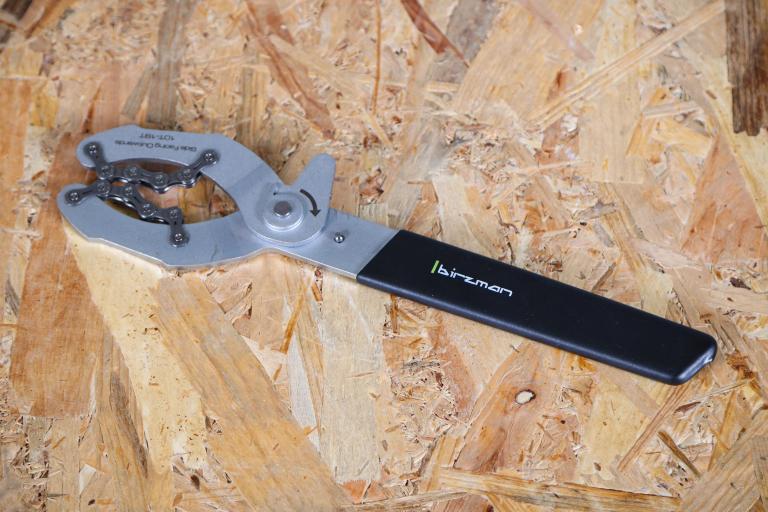
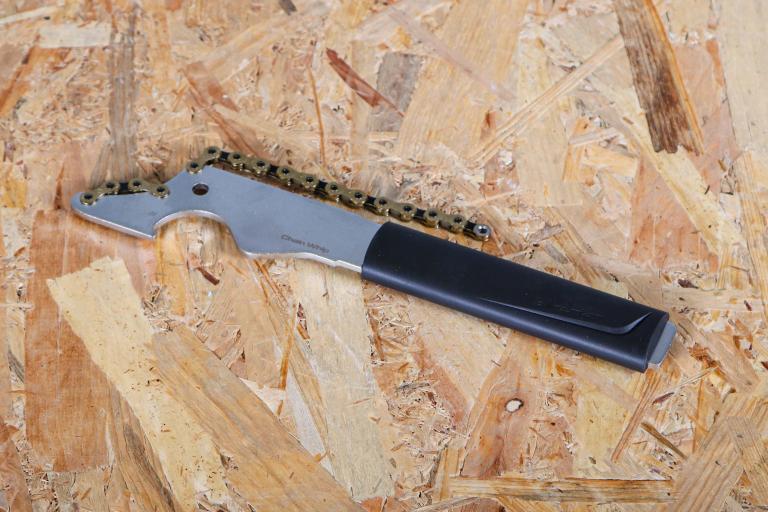
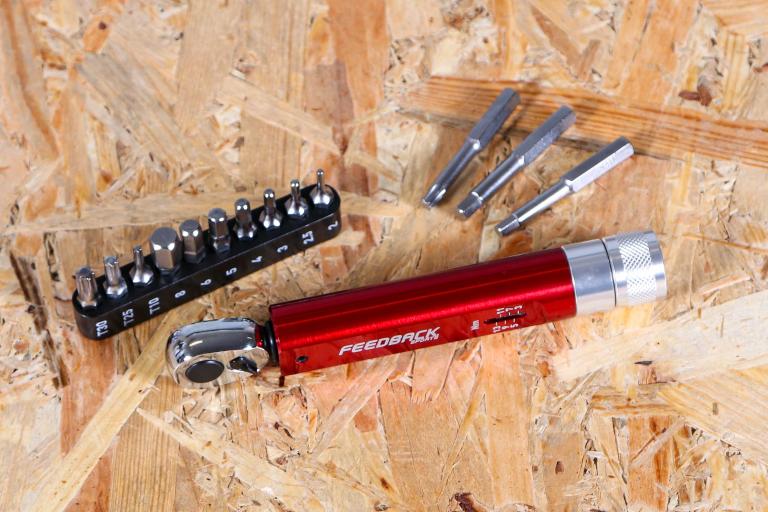
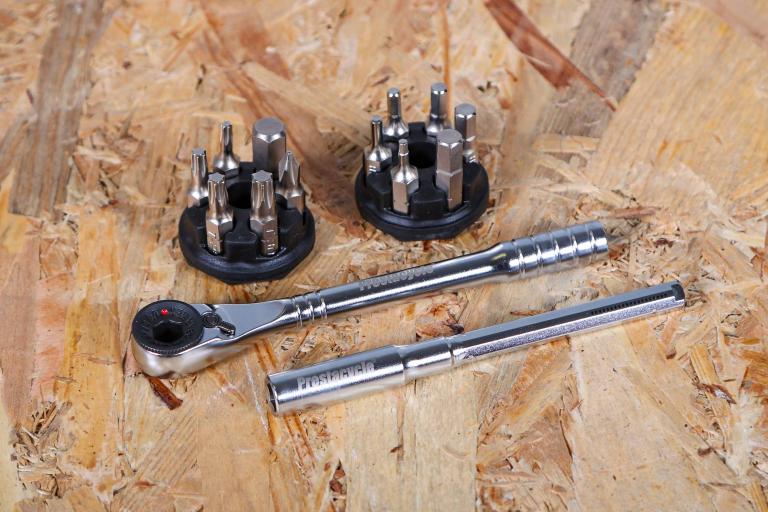
Add new comment
7 comments
WD40 isn't corrosive to paintwork. However, the solvent properties can dissolve, or at least soften polymer waxes. Similarly, there are so many different kinds/compositions of rubberised components-hence a note of caution.
Maybe worth checking with WD-40 is the product is corrosive to synthetic rubbers and paints - very possibly this is an old wives tale if used sensibly.
That end of summer slump for new kit releases to review is really hitting hard eh.
WD40 sent us their full range of new bike-specific products to have a go on. but since we hadn't actually reviewed WD40 itself, we thought we'd bung it up first.
look out for the other WD40 products soon...
Can you review GT-85? Smells nicer, for sure...
I would go for the US Break Free - brilliant stuff! Knocks the socks off even GT for smell!
Shame it strips oil and grease away and shortens the life of the bikes drive chain.